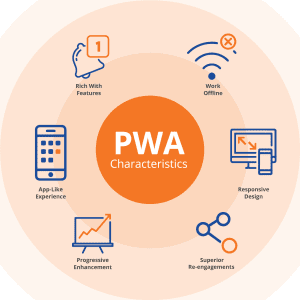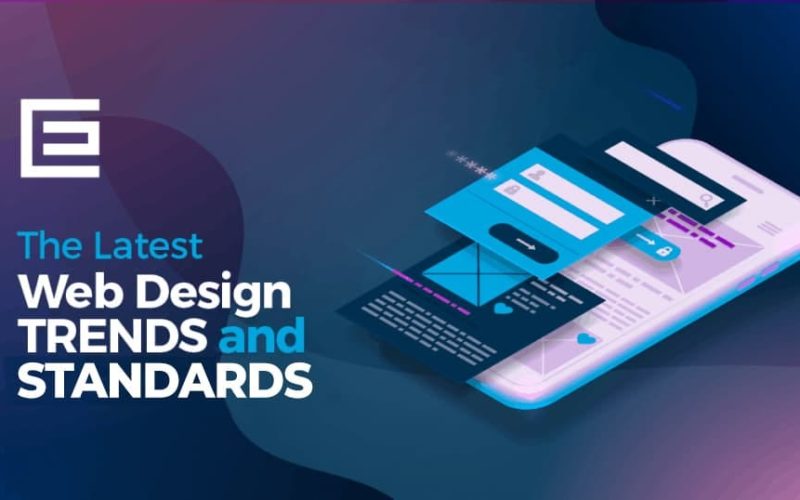1.Understanding the Dynamics of WordPress Customization:
WordPress customization has always been a pivotal aspect of web development, allowing users to tailor their websites to meet specific needs and preferences. In 2024, this trend continues to gain momentum, with developers leveraging advanced tools and technologies to deliver unparalleled customization options. From intricate theme designs to bespoke plugin development, the possibilities for WordPress customization are limitless.
Headless WordPress: Unleashing the Power of Decoupled Architecture:
In recent years, headless WordPress architecture has emerged as a game-changer in the development landscape. By decoupling the frontend presentation layer from the backend content management system, headless WordPress offers unparalleled flexibility and performance. In 2024, expect to see a surge in headless WordPress implementations, as developers seek to deliver lightning-fast user experiences across a myriad of devices.
AI-Powered WordPress Solutions: Revolutionizing User Interaction:
Artificial intelligence continues to redefine the way we interact with technology, and WordPress development is no exception. In 2024, expect to see AI-powered plugins and tools gaining traction, enabling developers to automate tasks, personalize user experiences, and enhance website security. From chatbots that provide instant customer support to content optimization tools driven by machine learning algorithms, AI holds the key to unlocking new possibilities in WordPress development.
Accessibility-First Development: Building Websites for All:
As the importance of digital accessibility gains prominence, WordPress developers are placing a greater emphasis on creating inclusive web experiences. In 2024, expect to see a surge in accessibility-focused development practices, with developers incorporating features such as semantic HTML, keyboard navigation, and screen reader compatibility into their projects. But Prioritizing accessibility, developers can ensure that their websites are usable by all individuals, regardless of disabilities.
Fortifying WordPress Security: Safeguarding Against Threats:
Security remains a top priority for WordPress developers, especially in an era where cyber threats are increasingly sophisticated. In 2024, expect to see a heightened focus on security measures, with developers implementing robust authentication protocols, automatic updates, and malware detection systems to safeguard WordPress websites against vulnerabilities. By adopting a proactive approach to security, developers can mitigate risks and protect sensitive data from potential breaches.
DevOps Integration: Accelerating Development Cycles:
DevOps practices continue to gain traction in the WordPress development community, enabling teams to streamline workflows, improve collaboration, and deliver projects more efficiently. In 2024, expect to see an increased adoption of DevOps principles, with developers integrating automation tools, continuous integration/continuous deployment (CI/CD) pipelines, and version control systems into their workflows. By embracing DevOps, developers can accelerate development cycles and ensure seamless project delivery.
PWA Integration: Blurring the Lines Between Web and Mobile:

Progressive Web Apps (PWAs) represent the next frontier in web development, offering the performance and user experience of native mobile apps with the reach and accessibility of the web. In 2024, expect to see a rise in PWA adoption within the WordPress ecosystem, as developers leverage technologies such as service workers, push notifications, and offline caching to create immersive web experiences. By embracing PWA technology, developers can blur the lines between web and mobile, delivering seamless experiences across devices.
Embracing the Evolution of WordPress:
WordPress, renowned for its versatility and user-friendliness, continues to evolve. In 2024, embracing this evolution is paramount for developers seeking to stay relevant and competitive. From Gutenberg’s block editor revolution to the rise of headless WordPress, the platform offers exciting avenues for customization and innovation.
2.Leveraging Advanced Development Techniques:
Headless WordPress decouples the backend from the frontend, offering unparalleled flexibility and performance. By leveraging APIs, developers can create immersive digital experiences while retaining the robust content management capabilities of WordPress.
Harnessing AI Integration for Enhanced Functionality:
Integrating artificial intelligence into WordPress development empowers websites with predictive analytics, personalized content recommendations, and automated customer support. Embrace AI-powered solutions to streamline workflows and deliver tailored user experiences.
3.Optimizing for Performance and Scalability:
PWAs combine the best of web and mobile applications, offering offline access, push notifications, and lightning-fast performance. By integrating PWA functionality into WordPress, developers can enhance user engagement and drive conversions across devices.
Scaling with Cloud-Based Solutions:
Embrace cloud-based infrastructure for WordPress hosting to ensure scalability, reliability, and security. Platforms like AWS, Google Cloud, and Azure offer robust solutions tailored to the unique needs of WordPress websites, accommodating fluctuations in traffic and optimizing resource allocation.
Implementing Robust Security Protocols:
Protect WordPress websites from evolving cyber threats by implementing multi-layered security protocols. From SSL encryption to Web Application Firewalls (WAFs), fortify defenses to safeguard sensitive data and maintain user trust.
Prioritizing Regular Updates and Maintenance:
Stay proactive in addressing security vulnerabilities by regularly updating WordPress core, themes, and plugins. Automated patch management solutions streamline this process, minimizing downtime and mitigating risks associated with outdated software.
4.Fostering Collaboration and Knowledge Sharing:

Join online forums, attend conferences, and contribute to open-source projects within the vibrant WordPress community. Collaborate with fellow developers, share insights, and stay abreast of emerging trends and best practices shaping the future of WordPress development.
Investing in Continuous Learning and Skill Development:
Embrace a growth mindset by investing in continuous learning and skill development. Leverage online courses, tutorials, and workshops to master new technologies, frameworks, and methodologies relevant to WordPress custom development in 2024.
5.Harnessing the Power of WordPress Custom Development in 2024:
In 2024, the landscape of WordPress custom development continues to evolve, driven by technological advancements, changing user expectations, and emerging trends. Harnessing the Power of WordPress Custom Development in 2024 requires staying ahead of the curve, embracing innovation, and leveraging the full potential of the platform.
Embracing Emerging Technologies:
As technology evolves, so do the possibilities for WordPress customization. Embracing emerging technologies such as artificial intelligence (AI), machine learning, and the Internet of Things (IoT) opens up new avenues for creating dynamic, interactive experiences that engage users and drive conversions.
Personalization and User-Centric Design:
User experience (UX) is at the forefront of website design considerations. Custom development allows for the implementation of personalized experiences tailored to individual user preferences and behaviors. From customized content recommendations to intuitive user interfaces, personalization enhances engagement and fosters loyalty.
E-commerce Solutions and Online Marketplaces:
With the growing prominence of e-commerce, WordPress custom development plays a vital role in creating robust online stores and marketplaces. From seamless payment integrations to advanced product customization options, custom e-commerce solutions empower businesses to capitalize on the booming digital marketplace.
Accessibility and Inclusivity:
Ensuring accessibility for all users, including those with disabilities, is a core principle of modern web development. Custom WordPress solutions enable developers to implement accessibility features, such as screen reader compatibility, keyboard navigation, and color contrast adjustments, ensuring that websites are inclusive and compliant with accessibility standards.
Performance Optimization and Page Speed:

In an era where attention spans are dwindling, optimizing website performance and page speed is paramount. Custom WordPress development allows for fine-tuning performance metrics, optimizing images, minimizing HTTP requests, and leveraging caching strategies to deliver lightning-fast experiences that keep users engaged and satisfied.
Integration with Third-Party Services:
From social media platforms to marketing automation tools, integrating third-party services enhances the functionality and capabilities of WordPress websites. Custom development facilitates seamless integration with APIs and external services, enabling businesses to streamline workflows, automate tasks, and leverage data-driven insights for strategic decision-making.
Conclusion:
As we navigate the dynamic landscape of WordPress custom development in 2024, embracing innovation and adaptability is paramount. By leveraging advanced techniques, optimizing performance, addressing security challenges, and fostering collaboration, developers can unlock the full potential of WordPress as a versatile and powerful platform for building dynamic digital experiences.
_______________________________________________________________________
FAQs:
How does headless WordPress differ from traditional WordPress development?
Headless WordPress separates the backend content management system. From the frontend presentation layer, allowing developers to use any frontend framework or technology to build the user interface.
What are the benefits of implementing Progressive Web App (PWA) functionality in WordPress?
PWAs offer improved performance, offline access, and the ability to send push notifications. And enhancing user engagement and providing a more app-like experience on the web.
How can developers ensure the security of WordPress websites?
Developers can prioritize security by implementing measures such as SSL encryption. And Web Application Firewalls (WAFs), regular updates, and automated patch management to mitigate risks and protect against cyber threats.
What role does the WordPress community play in developer success?
Engaging with the WordPress community provides opportunities for collaboration. And knowledge sharing, and staying updated on industry trends and best practices, fostering professional growth and development.
Why is continuous learning important for WordPress developers?
Continuous learning ensures developers stay abreast of emerging technologies, trends, and best practices. With enabling them to adapt to evolving client needs and industry demands effectively.
How can AI integration enhance WordPress websites?
AI integration enables WordPress websites to leverage predictive analytics. And personalized content recommendations, and automated customer support, enhancing user experiences and streamlining workflows.












